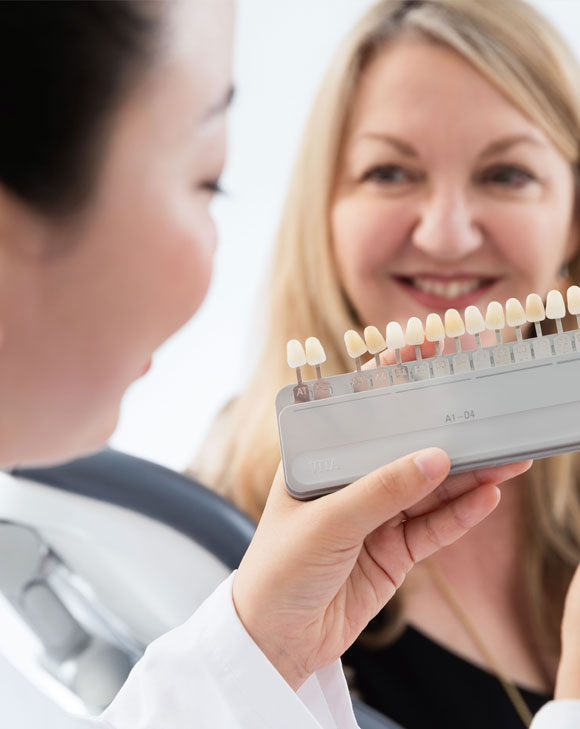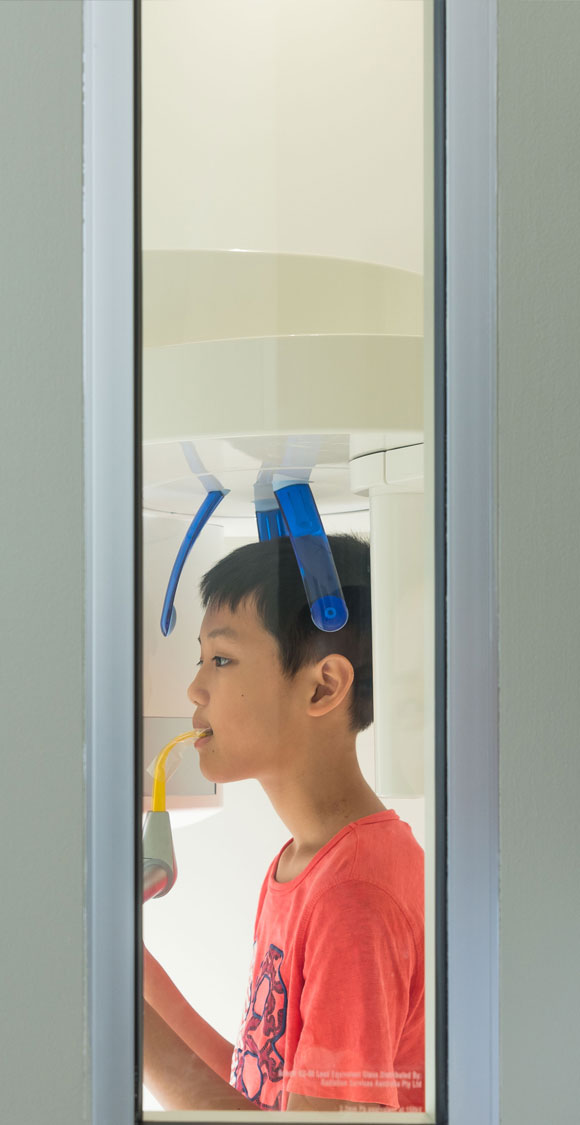360° Dental Care is open on weekends to make sure we are right here to help you if you have any dental emergencies.
Oral Pain and Toothaches
Toothaches are caused when the nerve in the root of a tooth or surrounding teeth are irritated. This may occur from an infection, decay, injury or extraction of a tooth. Symptoms may include sharp, throbbing pain around the tooth, swelling, and tenderness in the affected area, having a fever or a headache and/or foul-tasting drainage from the infected tooth.
Because most toothaches are the result of tooth decay, it is important to follow good oral hygiene practices consisting of brushing with fluoride-containing toothpaste, flossing daily, rinsing with antiseptic mouthwash, and seeing your dentist biannually for professional cleaning. Depending on the cause of a toothache, appropriate treatment options will be offered. For example, if a cavity is causing the toothache, our dentist will fill the cavity or extract the tooth (if necessary); or if the bacteria has caused an infection, antibiotics may be prescribed.
Emergency Extraction
In an emergency appointment, our doctor aims to relieve or stop the pain.
In some instances, an emergency tooth extraction is necessary to eliminate overcrowding in the patient’s mouth as overcrowding maybe causing the jaw to feel tight and sore. The removal of one or several teeth will align the patient’s teeth, and adequate space will be available for teeth to sit in their proper formation. Unfortunately, in some instances teeth can be too large for the mouth, so extraction is necessary.
Additional cases where emergency extraction may be necessary include when a tooth has completely decayed, if a tooth is infected, or if a wisdom tooth is causing too much pain. These unsalvageable teeth are removed for your comfort and to eliminate the chances of further infection. In these situations, our dentist will administer anesthesia to numb the area and ensure a pain-free extraction followed by advice and guidance and the required treatment and management procedures to address your problems.

Knocked-Out Teeth
In the case when a whole tooth has been knocked out from its socket, it is important you arrange an appointment immediately to maximize the chances of saving your knocked-out tooth. For adult permanent teeth, follow the following instructions leading up to your appointment after the incident where your tooth has been knocked out.
- Remain calm. This ensures you act carefully and responsibly to decrease further damage to your tooth and socket.
- Locate the tooth. Handle the tooth by the crown (the part that you usually see) and not by the root (yellowish pointy part).
- If the tooth is dirty, rinse it slowly in saline or milk. Do not rinse with water.
- Gently place the tooth back into the gum socket, making sure only the root is in the gum. Only proceed to this step if the individual who has lost the tooth is still conscious.
- Get the individual to hold the tooth in place by biting gently on a handkerchief or other soft materials.
- See a dentist immediately.
If the tooth cannot be placed back into the gum,
- Wrap the dislodged tooth in cling wrap, or soak in saline or milk.
- If you are bleeding, gently bite down on a handkerchief to apply pressure to the gum.
- Seek professional dental help immediately.
Knocked out teeth need to be addressed immediately, therefore it is important you contact us straight after the incident to make an appointment so we can have the higher chance of success of saving your tooth.
Chips and Fractures Teeth
Chips and fractured teeth involve an accident that has caused deformity in a part of the enamel (outer layer of the teeth). It is important to save any pieces of the tooth, rinse it in warm water and apply a cold compress to the outside of the mouth, cheek or lip near the affected area to relieve swelling and pain. Cracks and chips in teeth allow bacteria to enter under the tooth, and when left untreated will lead to serious infections.
Chipped Tooth Treatments
- Small chip –our dental professional may polish and smooth the chipped tooth.
- Medium chip we may use a filling or a crown may be placed over the damaged enamel to restore the appearance and function and to protect the underlying layers from infection.
- Large chip -if the chip exposes the tooth nerve, a root canal treatment may be required to remove the damaged nerve, finished off with a crown or cap to replace the chipped tooth.
Cracked Tooth Treatments
- Simple crack – our dental professional will polish the crack to smooth rough spots and improve the tooth’s appearance.
- Serious crack – if the crack extends from the top to the root, it may expose the underlying layers, making it vulnerable to infection. The gums surrounding the tooth may become sensitive and the tooth may become loose.
- Split tooth – when the tooth cracks vertically (generally in molars) depending on the severity of the split, our dentist may need to remove and replace the tooth.
- Split root – an inflamed and infected root will require extraction to treat the infection.
To prevent the cracks and chips from extending and transitioning into a greater problem, it is vital to seek professional dental attention immediately to receive the adequate treatment.
To minimise discomfort, you should avoid consuming foods or liquids at extreme temperatures (very hot or cold), avoid tough, chewy or hard foods, take pain medication if required, and be extremely careful of chewing as jagged edges of the tooth may cut the inside of your mouth.
Abscesses
Abscesses are infections that occur around the root of a tooth or between the teeth and gums. The infection damages the surrounding tissue and teeth and if left untreated may spread to other parts of the body.
An abscess will develop as a pimple-like swelling on the gums, they are generally extremely painful and full of pus. Symptoms from an abscess involve pain from chewing, increased redness and sensitivity in gums, mouth sores and/or fever. Contact us immediately to make an appointment if you suspect you are suffering from an abscess. To relieve pain while waiting for your appointment, rinse your mouth with warm salted water.


